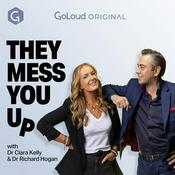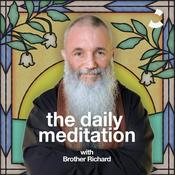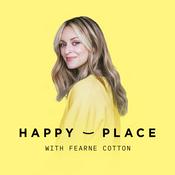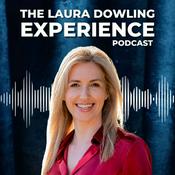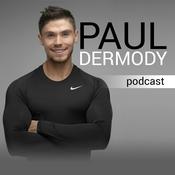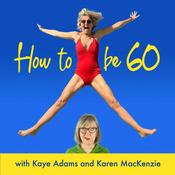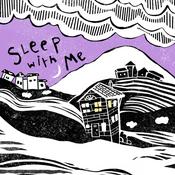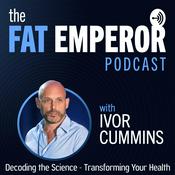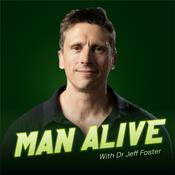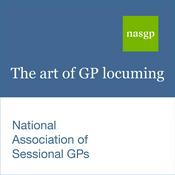42 episodes
- If you’re noticing sports betting, fantasy leagues, or “just for fun” gambling creeping into your teen or young adult’s world, especially with ADHD in the mix, this episode is an important listen. Modern betting is fast, private, and built for dopamine… and for some ADHD brains, that combination can become a slippery slope.
Host Kate Brownfield sits down with Saul Malek, an emerging voice on the modern gambling landscape, for a candid conversation about how gambling addiction can escalate quickly, why kids with ADHD may be more vulnerable, and what parents can do to support their child without enabling. Saul shares his personal story: diagnosed with ADHD at age four, pulled in through fantasy sports, and how the shift to digital betting and easy credit accelerated everything, costing him sleep, money, relationships, and nearly his life. Today, he’s been abstinent for more than 5 years and on a mission to educate families and communities.
In this episode, we cover:
Why ADHD can increase risk for addiction (impulsivity, stimulation-seeking, time blindness)
How sports betting evolves from “fun” to compulsion, especially when it’s accessible 24/7
The role of secrecy, shame, and chasing losses (and what it can look like at home)
What helped Saul recover: structure, community, accountability, and ongoing support
How parents can set boundaries, offer support, and avoid enabling, especially with older teens/young adults
Where to start if you’re concerned: meetings, specialized therapy, and reputable resources
Connect to Saul Malek: https://www.saulmalek.com/
Resources mentioned: Gamblers Anonymous (in-person + virtual), gamblersinrecovery.com, and the National Council on Problem Gambling
Connect with Kate, certified ADHD/Executive Function Parent Coach: ADHDKidsCanThrive.com
Enjoyed this episode? Follow, rate, and share with a parent who needs practical, protective guidance for today’s digital world. When Reading Is Hard: Dyslexia, Visual Processing & ADHD Support (with Diane Gutierrez)
02/2/2026 | 47 mins.If reading turns into tears, avoidance, or exhaustion in your home, this episode offers a fresh, practical angle: instead of forcing the brain to adjust to the text, what if the text adjusted to your child?
Host Kate Brownfield sits down with Diane Gutierrez (co-founder of Cognition Labs and a mom in a neurodiverse family) for a two-part conversation on reducing reading strain for dyslexia/visual-perceptual differences, and on real-life parenting strategies for ADHD families. Diane shares how adjustable text tools can lower cognitive load and improve comprehension, plus the lived wisdom that helped her family navigate school, stress, mental health, and the long haul of raising kids with ADHD and dyslexia.
In this episode, we cover:
Why “the text should adjust to us” (and how that supports comprehension + reduces fatigue)
How Cognition Labs transforms books, PDFs, notes, and scanned images with 15+ adjustable settings
Tools families use most: syllabication support, confusable-letter fixes (b/d/p/q), and visual settings that reduce strain
Why these supports may help kids with ADHD, by reducing cognitive load during reading
Parenting wisdom from a home where ADHD affects nearly everyone: meaning over pressure, consistency over perfection, rest as a requirement
When to consider therapy/coaching support and why it’s okay to switch if it’s not the right fit
Advocacy and testing: how understanding a child’s brain can change the path forward
Resources mentioned: Cognition Labs: https://www.cognitionlabs.com/
Connect with Kate, certified ADHD/Executive Function Parent Coach: ADHDKidsCanThrive.com | Coaching inquiries: https://adhdkidscanthrive.com/appointment/
Enjoyed this episode? Follow, rate, and share with a parent who could use practical, hopeful tools.Julia Ross on Amino Acids, Mood, Cravings, and Attention: Practical Nutrition Ideas for ADHD Families
30/1/2026 | 47 mins.If you’ve ever wondered whether there are nutrition-based supports to consider when ADHD brings big swings in mood, sleep, cravings, irritability, or focus, especially when medication isn’t preferred, isn’t available, or you’re looking for complementary tools, this episode offers a practical, hopeful starting point.
Host Kate Brownfield sits down with Julia Ross, M.A., N.N.T.S., best-selling author of The Mood Cure, for a grounded conversation about nutritional psychiatry and the role targeted nutrients (including amino acids) may play in supporting attention, stress, sleep, and emotional regulation.
In this episode, we cover:
Why foundational nutrition (especially steady fuel + breakfast) can matter for mood, attention, and regulation
How Julia’s work in addiction recovery led her toward nutrient therapy and “brain chemistry” support
The amino acids discussed in The Mood Cure and how they’re framed as potential supports for stress, sleep, cravings, and focus (with a strong emphasis on going slowly and listening to the body)
Why blood sugar dips (hypoglycemia) can show up as irritability, anxiety, “hangry” meltdowns, and intense sugar cravings, especially after school
How to think about trialing changes cautiously, including the importance of collaborating with a licensed clinician (especially for kids and anyone on medication)
Why parents deserve support too, because caregiver stress and sleep matter in the whole family system
Resources mentioned:
JuliaRossCures.com
Important note: This episode is educational and is not medical advice. Always consult a licensed clinician before starting supplements or making medication changes, especially for children.
Connect with Kate, certified ADHD/Executive Function Parent Coach |Whole Person Approach: ADHDKidsCanThrive.com
Enjoyed this episode? Follow, rate, and share with a parent who could use practical, hopeful tools.- Host & Guest: Kate Brownfield, Certified Whole Person & ADHD Parent Coach
Episode Description
Hi, it’s Kate Brownfield from ADHDKidsCanThrive.com. In this solo episode, I’m talking directly to you, the parent who wants the holidays to feel a little less chaotic and a lot more grounded for your ADHD child and your family.
The holidays can be gorgeous and fun… and they can also be really hard. Extra noise, broken routines, travel, sugar, relatives, expectations, it all adds up, especially for a sensitive ADHD nervous system (yours and your child’s). In this conversation, I walk you through simple, doable ways to lower the volume on holiday overwhelm and build a plan that actually protects everyone’s capacity.
My hope is that this episode feels like a steady hand on your shoulder and gives you a few concrete, compassionate tools you can start using right away.
In this episode, we talk about:
Why holidays feel “louder” for ADHD families
How excitement, uncertainty, and social demands overstimulate ADHD nervous systems and why that’s not a parenting failure.
Three daily anchors to protect regulation
A simple “map the day” framework that protects sleep, screens, and movement without turning your home into a military schedule.
Getting extended family on the same page (without drama)
How to kindly give relatives a clear role in a cozy connection, rather than acting as behavior police, and use short, simple limits with your child.
Making the day visible for your ADHD child
Using checklists, visual schedules, and quick previews helps your child know what’s coming and what’s expected versus what's unexpected.
The 60-second spike reset for you and your child
A quick reset you can use when emotions spike: one long breath, one next step, one tiny, concrete choice.
Planning for expected fidgeting and big feelings
How to meet your child where they are developmentally, and give them a plan for restlessness, boredom, or sibling conflict.
If You Need More Support
If you’re heading into a hard season or you want a clearer plan, you can always find me at ADHDKidsCanThrive.com for education, coaching, and tools to support your ADHD child and your family.
If this episode is helpful, please share it with another parent who might need a little steadiness and support this holiday season.
Wishing you and your ADHD kiddo a warm, gentle, and truly happy holiday. - Host: Kate Brownfield, Certified Whole Person & ADHD Parent Coach
Guest: Dr. Kate Lund, clinical psychologist, peak performance coach, TEDx speaker, and author of Step Away: The Keys to Resilient Parenting
Episode Overview
In this empowering “Kate + Kate” episode, Kate talks with Dr. Kate Lund about what resilient parenting really looks like when you’re raising kids with ADHD, big emotions, or health challenges. Drawing from her own medical journey (hydrocephalus as a child), 20+ years as a psychologist, and parenting 18-year-old twins, Dr. Lund explains resilience not as “pushing through,” but as a lifestyle: managing your stress response daily so you can ride the waves of homework battles, morning chaos, and dysregulated kids. She teaches a simple, science-backed tool, the Relaxation Response, that parents can practice for 5 minutes in the morning and at night to lower reactivity, model calmness, and create a more regulated home.
Suppose your baseline feels higher than that of other parents because your child is more intense or more dysregulated. In that case, this episode will help you stop comparing, honor your unique context, and build steadiness that you can actually sustain.
What We Talk About (Highlights)
Resilience as a lifestyle
Managing your stress response
The Relaxation Response (Herbert Benson)
Modeling regulation
Avoiding the comparison trap
“Step away” moments
Ripple effect for ADHD families: Calm first, then coach skills
Resources & Links
Guest: Dr. Kate Lund https://www.katelundspeaks.com/
Book: Step Away: The Keys to Resilient Parenting https://www.katelundspeaks.com/book
About Your Host, Kate
I’m Kate Brownfield, Certified Whole Person & ADHD Parent Coach, author of How We Roll: A Parent’s Journey Raising a Child with ADHD, and host of The ADHD Kids Can Thrive Podcast. I help parents understand ADHD through a whole-person lens—because every child is unique, and so is every family.
🌐 Find me: ADHDKidsCanThrive.com
Enjoyed this episode?
Subscribe to The ADHD Kids Can Thrive Podcast
Share this with a parent who’s parenting from a high baseline and needs a 5-minute tool today 💛
More Health & Wellness podcasts
Trending Health & Wellness podcasts
About The ADHD Kids Can Thrive Podcast
Join Kate, ADHD Parent Coach, Author, and host of The ADHD Kids Can Thrive Podcast, as she interviews experts and advocates in ADHD for parents who are raising a child with ADHD. She explores many different ADHD-related aspects for parents to consider along their journey to create a better life for their child and family. Learn more at https://adhdkidscanthrive.com/
Podcast websiteListen to The ADHD Kids Can Thrive Podcast, They Mess You Up with Dr. Ciara Kelly and Dr. Richard Hogan and many other podcasts from around the world with the radio.net app

Get the free radio.net app
- Stations and podcasts to bookmark
- Stream via Wi-Fi or Bluetooth
- Supports Carplay & Android Auto
- Many other app features
Get the free radio.net app
- Stations and podcasts to bookmark
- Stream via Wi-Fi or Bluetooth
- Supports Carplay & Android Auto
- Many other app features


The ADHD Kids Can Thrive Podcast
Scan code,
download the app,
start listening.
download the app,
start listening.


